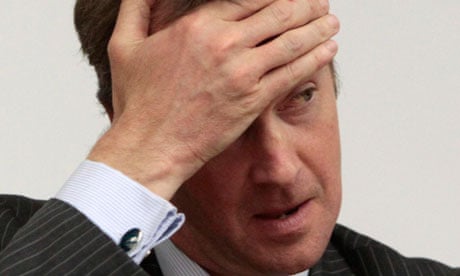In the run-up to this third round of talks on Iran's nuclear programme, Tehran's point man, Saeed Jalili, was asked to respond to an international confidence-building proposal and to clarify Iran's negotiating position. This he undoubtedly did in Moscow, and used a projector and a PowerPoint presentation to press his case. But the new technology and clarity simply revealed the gulf between Iran and its negotiating partners.
Last month in Baghdad, the Iranians claimed they had presented a five-point plan but nobody on the other side of the table (US, Russia, China, UK, France, Germany and the EU) were quite sure what the five points were, such was the opacity of Jalili's use of language.
This time he spelled out the Iranian position at length and in detail. The five Iranian five points are (according to participants in the talks):
1) The right to enrich uranium, coupled with the 'operationalisation' of the Supreme Leader's fatwa against nuclear weapons. Jalili suggested this could be done in the form of a UN document, in which Iran promised not to pursue weapons in return for continuing to enrich.
2) Relief from sanctions in return for cooperation with the International Atomic Energy Agency (IAEA).
3) Nuclear cooperation in the fields of civilian nuclear energy production and nuclear safety.
4) Confidence-building measures possibly involving limits on production of 20% uranium.
5) Non-nuclear issues like cooperation on counter-narcotics plus regional matters like Syria and Bahrain
Jalili used PowerPoint to go point by point through the six-nations' proposal of "stop, shut and ship" 20%-enriched uranium. Stopping production, shutting Fordow, the underground where it is made and shipping the 20% stockpile out of the country for safekeeping. In return the international community would provide nuclear fuel, help with nuclear safety and parts for commercial airliners. Jalili apparently went through each point and explained why it was unacceptable to Iran slide by slide, although has yet to hand over a paper copy to his interlocutors.
The bottom line is that Iran has clearly rejected the deal it is being offered and is instead demanding the right to enrich uranium and the lifting of sanctions in return for cooperating with the IAEA and halting 20% enrichment.
That is a very wide gap, particularly as Iran is nailing its colours very firmly to the right to enrich. The Security Council is united, however, in the view that that right is contingent on far greater transparency about its programme. That would involve highly intrusive IAEA inspections and a full account of any past experimentation with nuclear warhead design. Both seem directly at odds with the DNA of an embattled, secretive and suspicious regime in Tehran.
That leaves a partial deal on 20% enrichment. Just possibly, Iran could be induced to compromise if it was offered partial sanctions relief, an issue which splits the six-nation group. Russia and China are opposed to sanctions and would presumably put pressure on their partners to relent. But Iran so far shows no interest in such a bargain, even though it is considerably more favourable to Tehran than previous uranium-swap deals it has previously seemed to embrace.
The Russians are going to lean very heavily on Iran overnight. Jalili is tonight meeting Nikolai Patrushev, the secretary of Russia's security council. Being invited to dinner with a man who was head of the FSB (the renamed KGB) for nine years must be a sobering prospect.
At the moment, Iran shows no sign of bowing even under that pressure, but the Russians' determination that the talks not fail on their watch is probably the best guarantee that the negotiating process will stagger on, perhaps to Beijing or Astana, the Kazakh capital.
If that is to happen, the argument will presumably be made that Jalili did what was asked. He clearly articulated what Iran wants, and engaged with the other side's proposal, even if what he had to say was to no one else's liking.

Comments (…)
Sign in or create your Guardian account to join the discussion